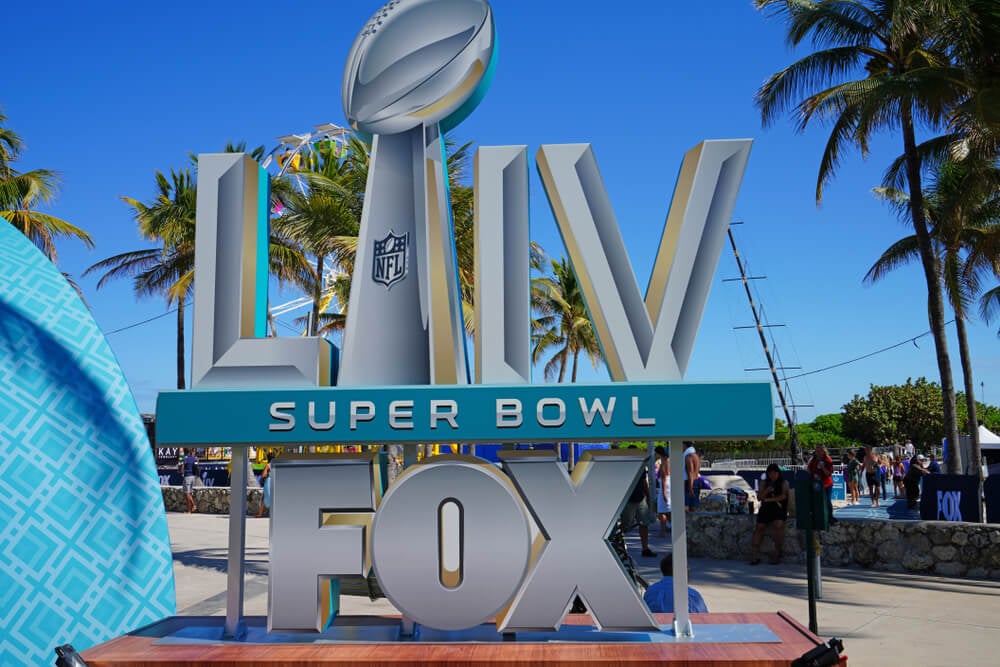The $1 Billion Reason to Never Play the Super Bowl on Sunday Again

More Americans skip work following the Super Bowl with each passing year. It's time for the NFL to reschedule the game. | Source: Timothy A. CLARY / AFP
- More than 17 million Americans will skip work on the Monday following the Super Bowl.
- This rampant absenteeism will cost U.S. businesses approximately $1 billion. And it will only get worse.
- It’s time to move the Super Bowl to Saturday – or at least the Sunday before Presidents Day.
Debates over whether the Monday following the Super Bowl should be a national holiday have become almost as big a national pastime as the NFL’s championship game itself.
Complaints that the game should be moved from Sunday have become almost as popular. One disgruntled teenager’s Change.org petition to shift the date to Saturday has already gathered more than 70,000 signatures.
Kids have always grumbled about having to go to school the day after the Super Bowl. I used to teach high school, so I know all too well just how unproductive that Monday can be. (My Charlotte-area school wisely started school two hours late after the Carolina Panthers played in Super Bowl 50.)
But with all due respect to 16-year-old Frank Ruggeri [CNN], the best argument for rescheduling the Super Bowl is the sheer disruption the following Monday causes to the U.S. economy.
Super Bowl Monday Is a $1 Billion Problem for the U.S. Economy

This year, an estimated 17.5 million workers have already resolved to skip work the day after Super Bowl LIV, according to a survey conducted by think tank Workforce Institute at Kronos . Eight million more won’t decide until they wake up on Monday morning.
That could have a staggering economic impact.
According to the U.S. government, the average private-sector employee works 8.5 hours per day and earns $28.32 per hour [BLS]. That means Monday’s bout of “Super Bowl Fever” will saddle businesses with approximately $4.2 billion in labor disruptions.
Given that employee absences cost around 22% of base payroll [Kronos], the Super Bowl is quite literally a $1 billion problem for the U.S. economy.
But the actual costs could be even higher.
Less than two-thirds of employees who will take Monday off gave their companies advance notice, and many of those 8 million workers who aren’t sure if they’ll call in sick will play hookey.
An estimated 1.5 million workers will “ghost” their employers altogether. They won’t even call in sick. They just won’t show up, forcing their companies to scramble to find last-minute coverage.
We Know Monday’s Going to Suck – We Gorge Ourselves Anyway

There’s no excuse for ghosting your boss. But it’s not hard to understand why so many Americans play hookey the day after the Super Bowl.
For one thing, the game ends way too late.
NFL games usually last about three hours. But the Super Bowl is not a typical football game. It’s one of the year’s biggest (and most lucrative) entertainment events, so the league and broadcast networks collude to make it last as long as possible. Last year’s Super Bowl ended at 10:14 pm ET following a 6:30 pm kickoff.
Not so bad, right?
The game may have ended at a reasonable hour, but by the time most fans turned off the post-game coverage, the clock was probably pushing 11 pm. Factor in the drive home, and anyone who attended a Super Bowl party was lucky to be in bed by midnight.
And no matter whether your team wins or loses, you’ll wake up haunted by the same feeling: regret.
According to Mashable, Americans drink 325.5 million gallons of beer on Super Bowl Sunday – that’s more than 1.3 gallons for every legal adult. In 2017, Nielsen found that U.S. consumers purchased more than $2.3 billion worth of alcohol in the lead-up to the big game.
And it’s not like they’re sipping on Bud Light while eating a salad.
There’s a reason antacid sales spike 20% [Money] the next day. Super Bowl Sunday is basically the Super Bowl of the junk food industry.
After a night of drunken gluttony, Americans wake up tired and plagued by heartburn, hangovers, and the knowledge that a quarter of their co-workers will call in sick too.
The Best Argument for Rescheduling the Super Bowl
This year’s absenteeism number is the highest on record, and the trend suggests it will only get worse.
That’s why moving the game to Saturday makes sense, even if it’s not a panacea. Weekend warriors would still skip work on Sunday, but the economic impact would be far smaller.
Approximately 89% of U.S. employees work weekdays , while just 31% work on the weekend. Weekend shifts also tend to be shorter – 5.4 hours vs. 8.5 hours during the week [BLS].
Assuming similar absenteeism rates, fewer than 6.1 million employees would skip work on the Sunday after a Super Bowl, which reduces the total economic impact to about $205 million.

The math speaks for itself, but I understand the reluctance to make the shift.
Super Bowl Sunday is a cultural institution. To borrow from “Animal House,” it “has a long tradition of existence.” Not to mention the fact that “Super Bowl Saturday” just doesn’t roll off the tongue.
But there’s a compromise that might make everyone happy.
The NFL should adjust the regular-season schedule so that the Super Bowl falls on the Sunday before Presidents Day, which is always the third Monday of February.
Americans everywhere – and their employers – will thank you.